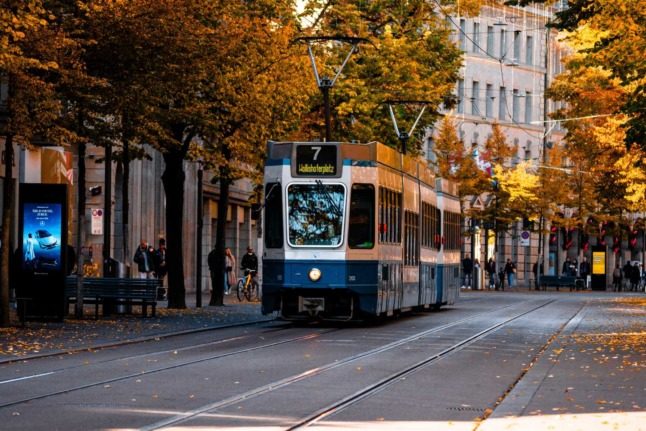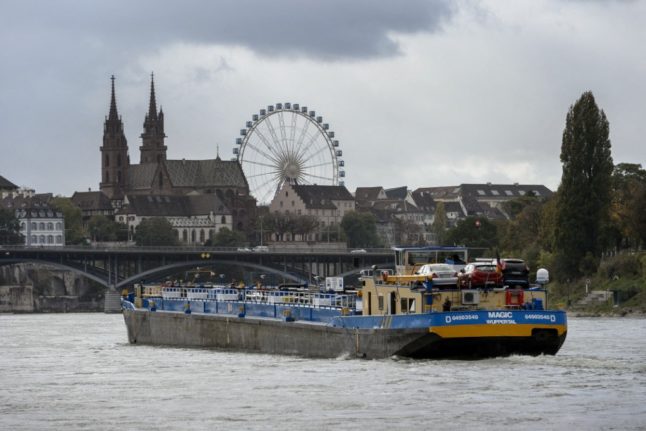From allowing local residents to vote on whether people can become citizens (rejected), or whether to amend the constitution to give people a day off on August 1st, the Swiss like to vote on anything and everything.
Which is perhaps why it is so puzzling that voting on whether to make public transport free is banned in some cantons, but legal in others.
EXPLAINED: How Switzerland’s direct democracy system works
The cantons of Zurich, Bern and Fribourg have expressly declared that voting on making public transport free is illegal under the Swiss constitution.
Vaud on the other hand has recently declared such a vote to be valid, with a future referendum to be held on the issue.
Neuchâtel also declared such a vote to be valid, although this is currently “under review”, as Swiss news agency Watson reports.
Here’s what you need to know.
Why is voting on public transport illegal?
Under Switzerland’s direct democracy system, people can have an issue put to a vote when they gather enough signatures to do so.
This can take place at a cantonal level, as with a recent minimum wage vote in Ticino, or at a federal level.
With Switzerland’s federal system, some things are regulated at a federal level and some at a cantonal level, with public transport being an example of the latter.
When advocates of free public transport tried to push for a referendum in the cantons of Zurich, Bern and Fribourg, the cantonal authorities all came to the same conclusion: that such a vote was illegal.
Under the Swiss constitution, users of public transport are required to bear the costs “to a reasonable extent”.
It was the opinion of these cantons – or at least the government in charge – that this meant free public transport was constitutionally prohibited, and as such no vote on the matter could take place.
Cost of living in Switzerland: How to save money if you live in Zurich
Why is free public transport considered legal in some cantons?
Put simply, the cantonal authorities – which are given significant scope to decide on the legality of proposed referendum efforts – in Vaud and Neuchâtel did not share the same view as those in Zurich, Bern and Fribourg.
Vaud told Switzerland’s Watson news agency that the constitutional provision was far from clear on whether free public transport was banned outright.
The cantonal authorities referenced the legal maxim “in dubio pro populo” – which loosely translates as “if in doubt, decide for the people” – in justifying their decision.
According to Vaud authorities, cantonal governments have the right to decide whether to fully subsidise public transport for commuters under Swiss law – provided the canton and not the federal government pays the costs.
Authorities in Neuchâtel came to the same conclusion in 2018 when recommending the issue for a vote, but recently announced a review of the decision on the basis of the decision of the other cantons.
What does “reasonable” mean?
Like the cantons, legal experts are split on the issue of what “reasonable” means.
Some argue that commuters already cover the costs through their taxes paid to cantonal authorities, which represents a “reasonable” extent.
EXPLAINED: How where you live in Switzerland impacts how much income tax you pay
Others, such as Zurich constitutional law professor Felix Uhlmann, argue that while some free travel is justified – for instance for children under six or for tourists as is the case in Basel City – making it completely free would be unconstitutional.
“I see a conflict with the federal constitution if public transport becomes free for the entire population”.
“But if we extend the freedom of charge to the entire population, we have definitely crossed the grey area.”
Uhlmann said that the efforts in Vaud and Neuchâtel will ultimately fail, as the issue is likely to go to the federal Supreme Court.
“Due to the number of initiatives alone, it is to be expected that a committee will contest the declaration of invalidity of the bill and ultimately the Federal Supreme Court will have to decide on the disputed issue,” Uhlmann told Swiss news outlet Watson.



 Please whitelist us to continue reading.
Please whitelist us to continue reading.
Member comments